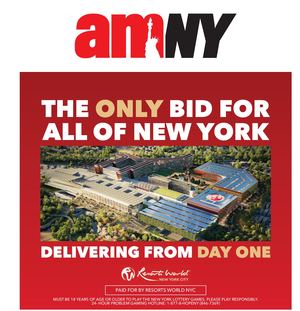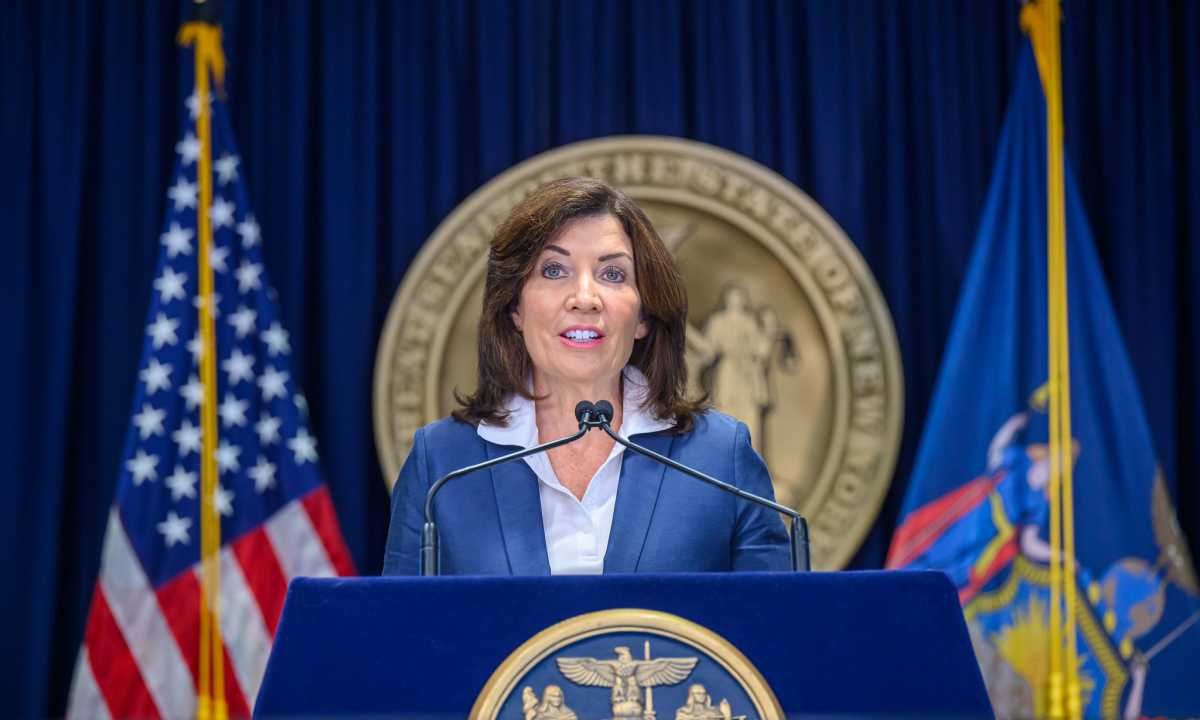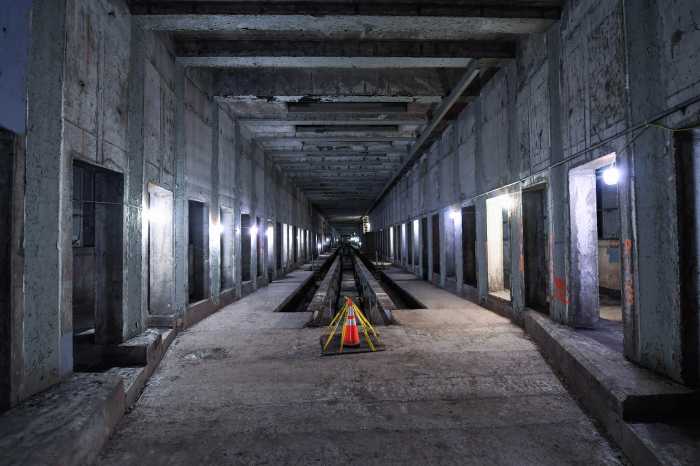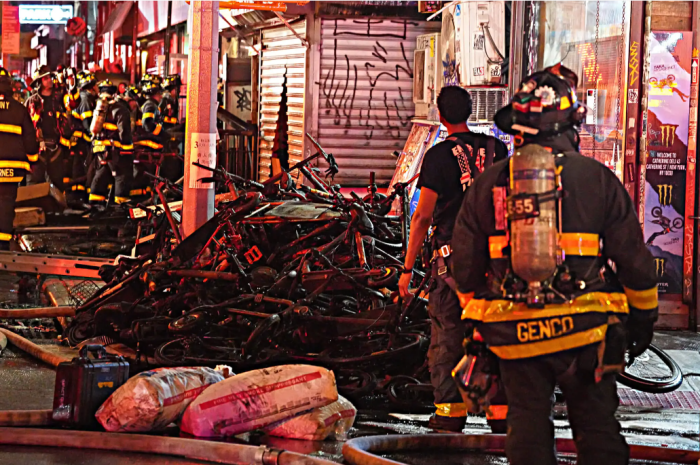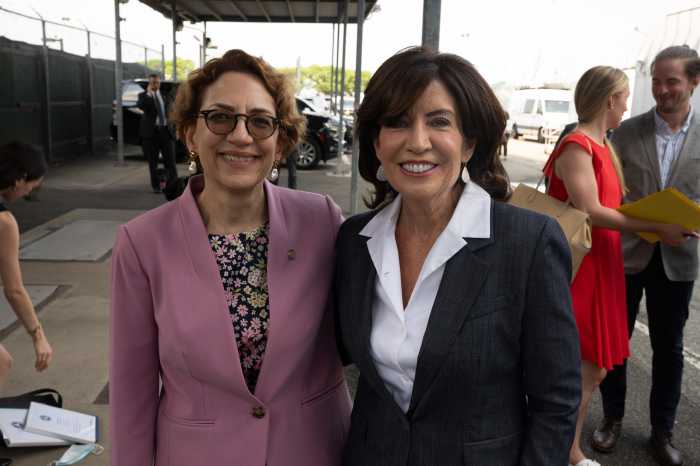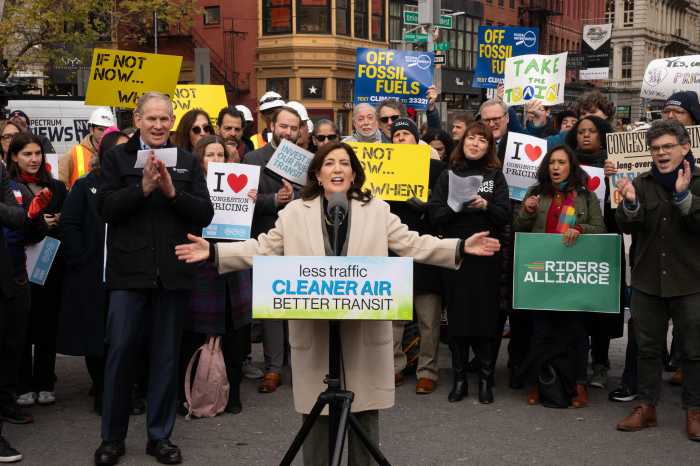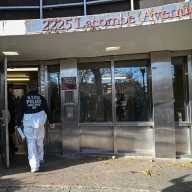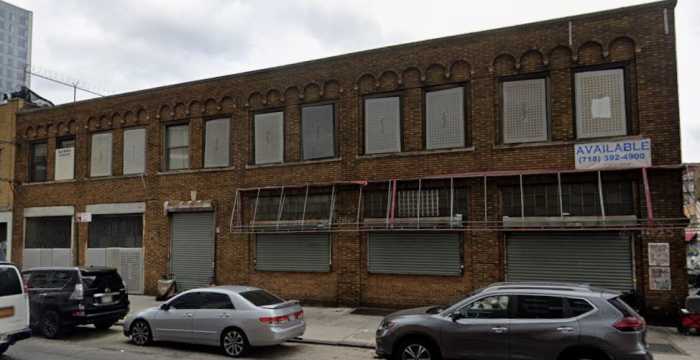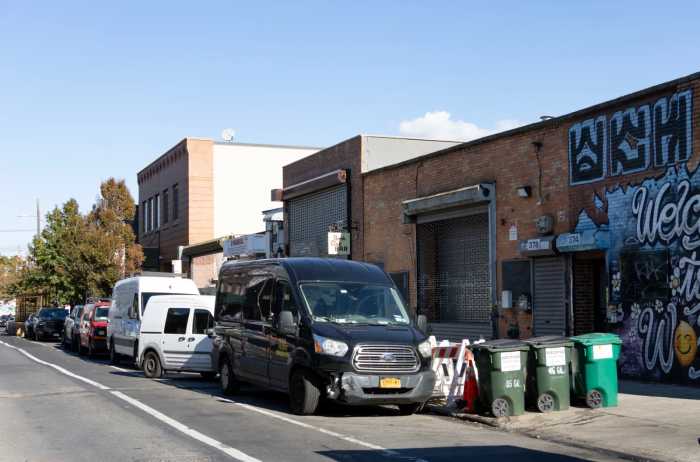More than two months after pausing congestion pricing, Gov. Kathy Hochul said Tuesday she is “massaging” a proposal through Albany to replace the money lost from the Manhattan toll freeze — though she is still vague on the details of how else to raise $15 billion for mass transit improvements.
At an unrelated Aug. 6 event, Hochul said she is attempting to tweak previous proposals that she failed to maneuver through the Legislature following her shock June 5 announcement of the pause, which blew a massive hole in the MTA’s ambitious modernization plans. Those attempts, including raising payroll taxes on city businesses and reallocating money from the state’s general fund, failed to sway legislators.
“We know that this is a temporary pause, we know that we have a timeline to really focus on this, have our plan in place, we can present it to the Legislature,” said Hochul. “As you know, we presented some plans in June, we want to massage those and get a way that will earn the support of the Legislature.”
“This will be resolved in literally a few months, to have everybody have clarity on what the path is going forward with the Legislature,” the governor continued.
Hochul has assured the public that replacement funding will materialize in next year’s state budget, but has not gone into detail on what those plans include, while also insisting the pause is only temporary.
Spokespersons for the Democratic leaders of the Assembly and Senate, Speaker Carl Heastie and Majority Leader Andrea Stewart-Cousins, did not return requests for comment.

The pause, announced by Hochul on June 5, has forced the MTA to suspend billions of dollars in planned work to modernize the Big Apple’s transit system, including replacing ancient signals that frequently break and cause delays, making subway stations ADA-accessible, and purchasing hundreds of clean electric buses.
Hochul has said she axed the toll, which would have charged $15 for most motorists to drive into Manhattan, owing to economic concerns.
“It was just too much for New Yorkers at that time. $15, all at once, impacting people who are struggling, working hard in our city,” said Hochul. “$3800 a year for teachers, firefighters, police, healthcare workers, pizza delivery, businesses were concerned so I think people understand what was behind it.”
The overwhelming majority of people commuting into Manhattan do so on mass transit, and drivers tend to be wealthier than train or bus riders.
“Gov. Hochul has spent two solid months spinning wild yarns about congestion pricing,” said Danny Pearlstein, policy and communications director at the Riders Alliance. “The governor’s lies make her job of funding transit, cutting traffic, and saving lives from deadly collisions, air pollution, and climate change so much harder. “
The Riders Alliance is one of several groups now suing the governor aiming to force the start of congestion pricing. Litigants claim the governor’s action violates the state law directing the MTA to implement a congestion pricing plan to fund its capital plan, as well as state climate laws stipulating limits on carbon emissions and guaranteeing a right to a healthy environment.
It appears the voters may be on the side of Hochul, however. In June, Siena College found that 45% of registered voters said they approved of Hochul’s pause, twice the number who opposed it. In a new Siena poll of Long Island residents posted on Tuesday, 70% of Nassau and Suffolk County residents said the toll should be permanently scrapped.
Hochul has fiercely denied rumblings that she put congestion pricing on ice for political reasons, namely its potential to hurt Democrats’ chances to regain several suburban seats in the House of Representatives. On Monday, House Minority Leader Hakeem Jeffries, one of New York’s and the nation’s top Democrats, refuted that he had anything to do with the pause even as he called it “reasonable.”
“I have private conversations with Gov. Hochul all the time, she’s doing a great job on our behalf,” Jeffries told reporters in Brooklyn on Monday. “We did not discuss the impact adversely on the House of Representatives.”
Read More: https://www.amny.com/nyc-transit/
